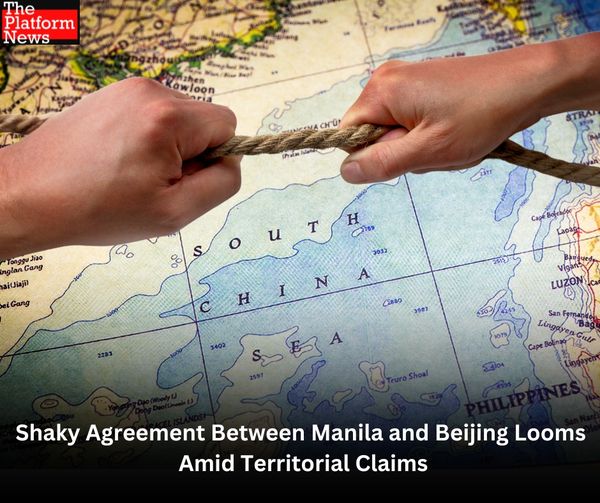On August 13, 2024, China and the Philippines have reportedly reached an agreement intended to foster cooperation in the South China Sea.
However, the United States Institute of Peace (USIP) reported that the deal was sealed at an unprecedented time when both nations maintain deep-seated disagreements over territorial claims.
The agreement came amid rising tensions, exacerbated by recent clashes between Chinese Maritime Militia forces and the Philippine Coast Guard.
The South China Sea has been a hotspot for disputes since the early 2000s, primarily due to China’s aggressive territorial claims marked by the “nine-dash line,” a segment of line segments that overlap with the exclusive economic zones of several Southeast Asian countries including the Philippines.
The situation escalated further when China began constructing and militarizing artificial islands in the contested waters. In response, the Philippines filed a case with the Permanent Court of Arbitration in 2013, which ruled in favor of the Philippines in 2016 and invalidated China’s extensive claims.
Despite this ruling, China has refused to recognize the decision and has continued its assertive activities, leading to frequent confrontations.
Over 50 incidents between Chinese Maritime Militia forces and the Philippine Coast Guard have been reported since 2021. These encounters, which have intensified over the years, have included the use of water cannons by Chinese ships to disperse Philippine vessels and military-grade lasers to temporarily blind Filipino sailors.
In early 2024, a Filipino sailor lost a finger during an altercation with Chinese forces. This is one of the many altercations that fueled public outrage in the Philippines and deepened skepticism about China’s intentions, even as both nations discussed cooperation.
The Philippines has consistently sought to address these tensions through international law, frequently protesting China’s actions at forums like the United Nations Convention on the Law of the Sea (UNCLOS). Since the 2016 ruling, the Philippines has lodged numerous diplomatic protests, urging the international community to uphold the decision.
The Philippine government continues to advocate for a peaceful resolution, recognizing the need to strengthen its defense capabilities to protect its territorial waters, particularly around contested areas like the Bajo de Masinloc, or the Scarborough Shoal.
The agreement was intended to improve relations by promoting cooperation on issues like joint oil exploration and fishing rights. However, ongoing disputes over sovereignty have instead turned the deal into a focal point for renewed debates and skepticism, both within the Philippines and internationally.
The international community, particularly the United States is closely watching these developments. U.S. Defense Secretary Lloyd Austin reiterated America’s commitment to the Philippines under the 1951 Mutual Defense Treaty, warning that any armed attack on Philippine forces, public vessels or aircraft in the South China Sea would invoke U.S. defense obligations.
The U.S. has also condemned China’s actions, particularly using water cannons and other aggressive maneuvers.
Philippine Defense Secretary Gilberto Teodoro has described the situation as a “continuous struggle” for sovereignty, emphasizing that the Philippines will resist China’s “dangerous and reckless behavior.”
He also suggested that the Philippines might need to enhance its military capabilities, including the potential use of fighter escorts for patrol planes to better protect its forces in the region.
Despite these challenges, there is still hope for a peaceful resolution. The ongoing dialogues, although contentious, indicate a continued commitment from both sides to finding common ground, while international pressure, combined with diplomatic efforts, may pave the way for more constructive engagements.
The mutual interest in maintaining regional stability and avoiding conflict could ultimately drive China and the Philippines toward a more cooperative relationship where diplomacy prevails over confrontation.
This optimism is supported by the belief that sustained dialogue, backed by international support, can lead to a peaceful and stable South China Sea, benefiting not only China and the Philippines but the entire Asia-Pacific region.



